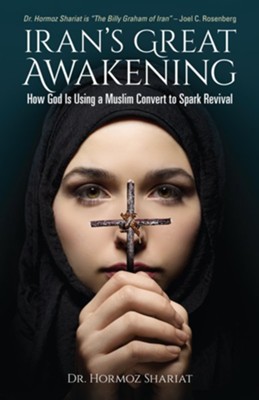
Pneuma Review had the privilege of speaking with two brave women that God used to share the story of Jesus with thousands in their homeland of Iran.
Maryam Rostampour and Marziyeh Amirizadeh introduce themselves:
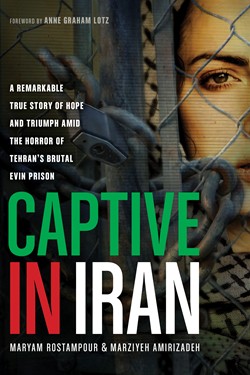
We were born into Muslim families in Iran. As young adults we became Christians and met each other while studying theology in Turkey in 2005. Then we returned to Iran and began sharing our faith with many Iranians by distributing Bibles and leading house churches. In 2009, we were arrested in Tehran for promoting Christianity. The official charges against us were apostasy, blasphemy, and anti-government activities, for which we faced execution by hanging. We spent 259 days in Evin, one of the most notorious prisons in the world. Following international pressures and after months of interrogations and abuse, we were freed in November 2009. We were threatened by our interrogators that we could not live in Iran as Christians anymore and therefore were forced to leave our country Iran in 2010.
In 2011 we moved to the United States as refugees and shared our prison experiences, as well as the human rights violations we experienced in Evin in our book Captive in Iran, which was published in April 2013. Since then we have been actively sharing our story in the United States and in other countries, with people and policymakers, in order to bring awareness about the ongoing human rights violations and persecution of religious minorities in Iran. We have also been full time students at Georgia Tech University in Atlanta, working on our BS and MS in International Affairs. We just finished our studies and graduated with Master of International Affairs in December 2019. We hope that our experiences and education will help us to better advocate for the voiceless people who experience human rights violations, particularly those who experience daily abuse and persecution by the Iranian regime.
PneumaReview.com: You were both raised in the Islamic Republic of Iran. How did you become followers of Jesus Christ?

Maryam Rostampour
Maryam: When I was growing up, I always had a lot of questions in my mind: What is the truth? Who is God, and how I can have a close relationship with Him? Why do I have to talk to God in a language I don’t know, praying words I don’t understand? I had many other questions about Islam and its rules, which frustrated and confused me. I was eager to find the truth, so I tried to study and research other religions on my own. I read a Persian translation of the Koran and some other books—but not the Bible, because I couldn’t find one. Sometimes I prayed Namaz (Islamic prayers), and I also attended meetings of other religions from time to time. However, none of these efforts could quench my thirst.
At age seventeen, I was completely disappointed and thought it would be better not to follow any religion. I was tired of the meaningless rules and religious laws, and tired of a faraway God whose voice I never heard. I had always longed for two-way communication with Him but had never experienced it in Islam. Eventually, I completely stopped doing research. But even then, sometimes when I was alone, especially at night, I looked up into the sky and asked God to reveal Himself to me and speak to me. At times, I would talk to Him in Farsi, like a conversation, for an hour or two, and enjoyed it very much.
One day my sister gave me a little booklet titled His Name Is Wonderful. It was part of the Gospel of Luke, from the Bible. She said she had received it from a man at the church near her university. She knew I was searching to know God and that I would read any book on the subject. “Just don’t read the last page,” she warned, “because it is a confession prayer for anyone who wants to become a Christian.” I took the booklet from her and went to my room right away, closed the door, and started reading. From the first page, my heart was deeply moved. I started to cry because I could feel the presence of Christ in the room right in front of me. While I was reading, I felt as if I had already known and heard all of these words in the book and had just found what I had been seeking for many years: the love of Christ. During those hours alone in my room, I realized why I had always felt a barrier between myself and God. As I read about the love of Christ and the work He did on the cross for my sins, I said to myself, that is exactly what I have been looking for all these years: love without conditions. None of those words sounded strange or unbelievable to me, even when I read that Jesus is the Son of God. I always tell people that Jesus Himself witnessed and delivered to me the Good News of salvation as a gift, even before I had spoken to anyone about Him or gone to church. He revealed His truth to me and prepared my heart for accepting it. After two or three hours in my room, I knew I had discovered what I had been searching for; I felt like I had already known Jesus for many years. When I got to the last page of the booklet, I prayed the written prayer and gave my heart to Jesus without any doubt or second thought.
For two years, I attended a weekly Bible study in a woman’s home in Tehran, taking the hour-long taxi ride each way from my home in Karaj. One day, she led a Bible study on the book of Acts and read about believers in the early church receiving the gift of the Holy Spirit and speaking in tongues. She spoke to me about her own experience. I was intrigued with the idea that God would give a gift to humans, a promise of a special spiritual experience. I wanted it for myself. Later that day, in my room at home, I received this gift and spoke in tongues. I was surprised and overwhelmed with joy. Nothing like this had happened to me before. I realize that not every Christian has this experience. The Bible describes many gifts, and this was one that I received. I believe that God, in His wisdom, uses whatever tools He has available to bring the Gospel into people’s hearts.
I wanted to be baptized in the official church in Tehran, where we attended, but the regime monitored the church closely and frowned on church baptisms. Instead, in 2002, I was baptized secretly at midnight in the basement of another small church. Though I was only nineteen, the pastors asked me to start serving in the church, speaking to new believers and working with a group of elderly ladies. The pastors said I had a great passion for evangelism, though when I boldly talked about Christ in the subway or riding in a taxi, the pastors said with a note of caution, “Save it for church!” After I had served in that church for a year and a half, my pastor introduced me to a ministry in Turkey. I travelled there to study theology and leadership courses in 2005; that was when I met Marziyeh for the first time.
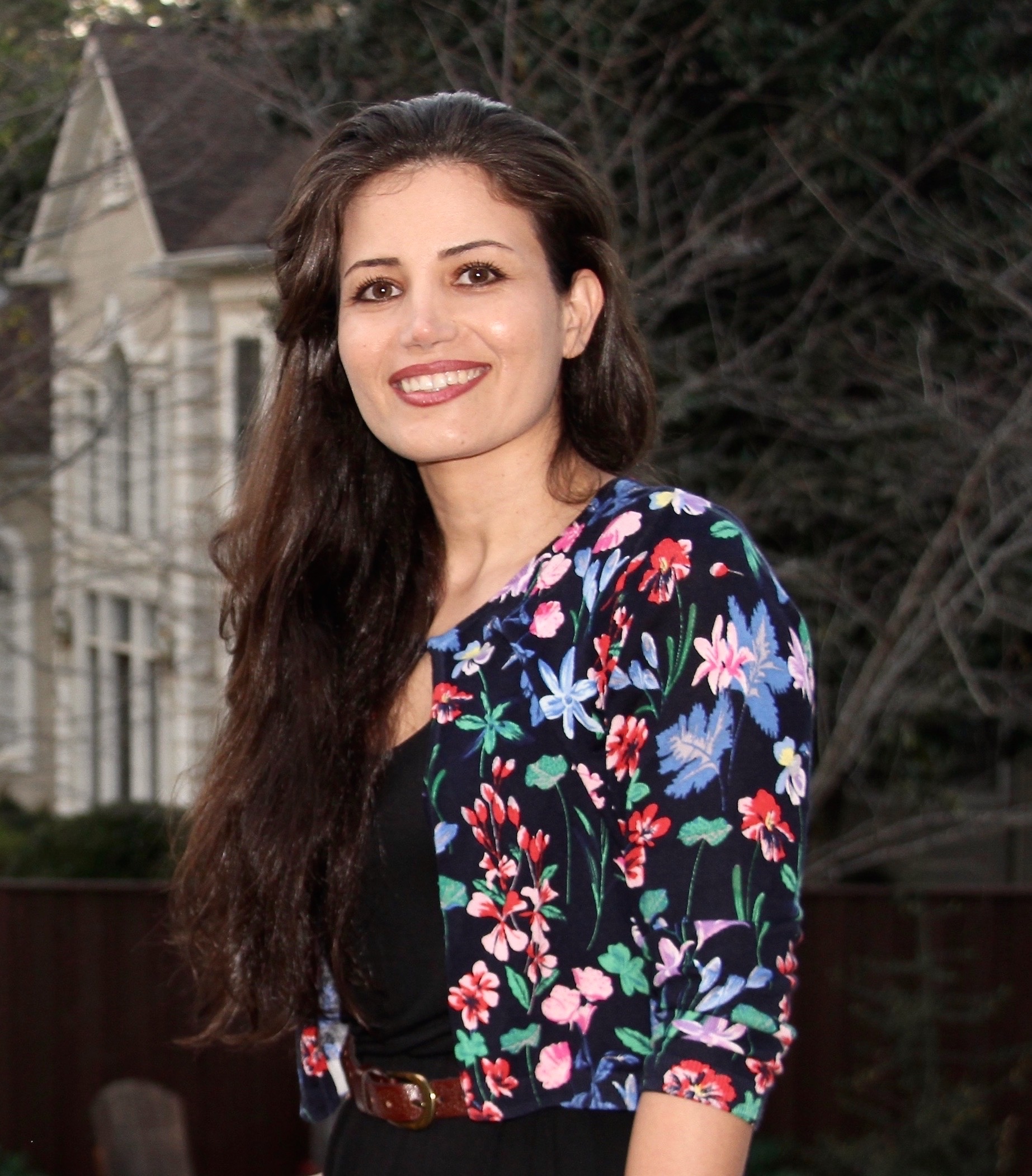
Marziyeh Amirizadeh
Marziyeh: Ever since I was a young child, I loved God and wanted to find out more about His truth. I did everything I knew to get closer to Him. My only means of getting to know God were through Muslim religious teachings and things I learned at school. But I always had many questions about God that Islamic theology and Sharia law could not answer. I used to think of God as a kind father who is closer to us than members of our own family, because I believed that the God who created my body was closer to my heart than my own flesh and blood. I had been taught the beliefs of Islam and debated them with friends and teachers in school; I could not accept the Koran’s teachings, as they did not seem true to me. I did not accept the image of God that many Muslims have as one who harshly rules over the human race and punishes us for the slightest sins. That is a terrifying image of God. I believed that the daily Namaz prayers, bending several times a day in front of a God who was already in my heart, were a waste of time and unnecessary, and I could not accept them. I also had many questions about why I had to speak to God in Arabic instead of in Farsi, my native language. Doesn’t this God who taught me my own mother tongue know it Himself? Why should I pray to Him as if He’s a great leader or ruler over me? Why can’t I speak with Him in my own language? These were the questions that had long occupied my mind.
The answers I received at school were not convincing. Despite my reservations, I did my best to fulfill my religious duties. I told myself that I might be wrong, and that the truth would show itself to me one day in the future. I prayed Namaz for two years without fail. I used to read the Koran, and I would even wake up in the middle of the night and pray again. But these types of prayers and worship were not making me feel any closer to God. On the contrary, they created a greater distance from Him as they became a routine action that I was forced to do, not something that I wanted to do.
Even before I found Christ, I was certain that God spoke to me in dreams. In one dream, I was praying toward the sky when it opened up and a white horse came down and spoke to me: “Sit on my back,” it said. When I obeyed, the horse took me to a city where worshipers coming out of a mosque were performing the Ashura and Tasua ceremonies (Islamic ceremonies), mournful chanting and self-beating. At first, they couldn’t see me or the horse. But suddenly they appeared to change into wild animals with savage features, not like people at all. As soon as I saw them, they could also see me and tried to kill me. The horse ran like the wind to save me. As I held fast to its neck, I felt its love pouring into me with a power and purity I had never known. After we eluded our pursuers, the horse came to a fork in the road where one path turned up into the sky. As the tired horse started on the upward path, I awoke. For a week after that, all I could think about was the deep love I had experienced in the dream. I have never since experienced love like that in this world. God, why did you let me wake up? I wanted to be in this dream forever! (That same horse has reappeared to me in a dream, with a message, every few years since then.)
After some thought and consideration, I came to the conclusion that the most important part of being a believer is my heart, and I decided to put aside my religion. I began to speak to God with my heart, in the manner of a relationship between a child and her father. One day, I heard from a friend of mine who had converted to Christianity that, in their religion, Jesus Christ is the Son of God and the Savior of humankind, who has come to the earth to free people from their sins. I became curious; I had not heard anything like that before about Jesus. I used to think He was just another prophet, as He had been introduced to us in our textbooks at school. I said to myself, how do I know He is the truth? I decided to study different religions in search of the truth and began to read the Bible. After a while, I realized I could not possibly spend the many years necessary to study all the religions of the world, and that there might be some faith in the world that I would never be able to know in full. Therefore, I knelt and prayed, asking God to show me the right path to reach the truth. I said, “If Jesus is the truth, then you must guide me in the path that would take me to the truth and save me from being misguided.” The next thing that happened was a real miracle. During this time, I was invited to a church by a friend. On that same day, I had a medical appointment scheduled with a specialist. My visit to the church was an incredible experience. People were worshiping with joy and praying freely to God. Suddenly, in my heart, I heard a voice: Marziyeh, you are healed. I wanted to ignore this voice, but when I told my friend, she said it was Jesus and that He could heal me. Later, at my medical appointment, the doctor picked up his pen to write me a prescription. Then he stopped. I waited, wondering why he was hesitating. Finally, he said, “I don’t know why, but I cannot write a prescription for you. Come back another time.” At that time, I sensed that God reminded me of His message in the church and told me to trust Him. The symptoms were immediately cleared up. But even after Jesus healed me, I did not fully believe in Him. To me, the healing wasn’t enough proof to convert to Christianity, so I asked God to show me more reasons. At the bottom of my heart, I had begun to believe in Jesus, but I still had my doubts.
“I had met with God through His Son, Jesus Christ. From that day forward, I dedicated my life to Jesus, I always felt God’s presence with me, and I saw countless miracles and dreams from Him.” – Marziyeh Amirizadeh
In time, I obtained certifications as a manager and trainer in a cosmetology school. Working with trainees gave me opportunities every day to share the Good News of Jesus Christ. Many women were eager to know more and gladly accepted a Bible from me. Though I was successful and secure in my profession, I was sure that the Lord wanted me to serve Him fulltime. Nothing compared to telling the world about Jesus. When a pastor friend suggested I study theology, I quit my job and traded a certain future for the unknown. I had started with nothing in Tehran and in five years had achieved worldly success. Now I was starting over again. I planned to study theology in London, but I was unable to get a visa. Instead, I traveled to Turkey for studying leadership and theology courses. That’s where I met Maryam.
PneumaReview.com: Once the two of you met, you began to work together distributing 20,000 New Testaments. Please tell us a bit about that.
Marziyeh: After we gave our hearts to Jesus, we had so much passion to know more about Him, to serve Him and also share the message of salvation with our people. We were invited to a Christian conference in Turkey in 2005 where we met each other for the first time. After returning to Iran from Turkey, we both had the same vision from God for evangelizing people by distributing Bibles, because in our country there is just a false and distorted version of Bible (the Barnabas Bible) printed in Farsi and people can’t find the real version of Bible. In three years, we distributed about twenty thousand New Testaments in Tehran and a few other cities.
We divided the city into squares on a huge wall map, at night we carried 140 New Testaments in our back bags, visited one area at a time between eight p.m. and midnight and put them in mailboxes.
PneumaReview.com: When the authorities found out about your activities, what happened?
Maryam: Some people reported about our activities and the government arrested us in March 2009. The day we got arrested we were sent to the security police. We were so scared, pale, and we were both in shock. We had long hours of interrogation until midnight and we were threatened with physical torture by our first interrogator. They sent us to a dark and dirty cell in the basement and told us “you should give us all the information about your friends, your network and your activities as Christians otherwise we will beat you until you vomit blood.” We can’t explain in words how scary that situation was for both of us. It was the first time in our lives that we had such an experience. Before going to prison we had heard about women who had been tortured both physically and mentally, raped and been killed in the Iranian prison. We were now facing the same fears.
We remember we were so scared, in that dark cell we just hugged each other, saying goodbye as we were praying for each other and asking the Holy Spirit to strengthen us. We were in that dark cell from 8 in the morning until 11 at night, and every moment we were waiting for someone to come in and to take us for torture. We don’t know exactly what happened that day, but they didn’t even come to our cell until midnight and they said that they wanted to transfer us to a detention facility. We believe that the only thing that gave us the power to stand in that difficult situation was the presence of the Holy Spirit and God’s grace. For the first few days we were praying for our release because the conditions were so awful. For example, for the first 14 days we were in a detention center, which was in a basement, we had to sleep on a freezing and filthy ground floor with no carpet, we could only use some wet blankets, smelling strongly of urine, to cover ourselves and to keep ourselves warm. We later realized that the guards locked the cells from 8 at night until morning and prisoners could not even use the restroom. For days we didn’t eat or drink or even see the light. Physically we were under so much pressure. However, when we saw God’s miracles through our prayers for prisoners and how He was using us as a tool to give His message to our fellow prisoners and even to some guards, we understood that God had a plan for us even in that dark place and we could trust His plans.
“When we saw God’s miracles through our prayers … we understood that God had a plan for us even in that dark place and we could trust His plans.”
Later, we understood that some of the guards also were curious to know about Jesus because they could see how much prisoners wanted to spend time with us and they wanted us to pray for them. When we were leaving the detention center there were some guards who came to us, they would hold our hands behind bars and asked us to pray for them and forgive them, which was a miracle. Then, after 14 days, we were transferred to Evin prison with charges of apostasy, blasphemy, promoting Christianity and being anti-government.
“The government would have released us if we had denied our faith in Jesus, but we refused to do that.”
We also had the experience of being interrogated in solitary confinements of 209, which is a separate building in Evin and is famous for its mental and physical torture. Once a week, we were being interrogated for long hours by two interrogators and during that time, we were separated.
We saw many injustices inside Evin prison. For example, one of the most painful of our experiences was the execution of prisoners with whom we were living every day. We had never experienced such a thing. After these executions we could feel the spirit of sorrow and death. There was deadly silence everywhere, all the prisoners could feel this. We couldn’t say anything. Everyone was under pressure, we stared at each other, but we had no power to speak. Executions had the worst effect on prisoners. They also executed one of our best friends who was only 28 years old.
“We hadn’t just converted to the Christian religion. We are both in love with Jesus.”
“The government had tried to silence us by keeping us in prison, but that dark and brutal prison became our church .”
We spent 259 days in prison, and we were supposed to be executed by hanging. We believe that the first reason that we are free today is because of God’s grace and also, we heard that many Christians from all around the world were supporting us either by praying or sending letters to prison, which made a huge difference. When people started sending letters to prison to show their support for us, our judges and the guards started to change their behavior with us because they could see that there was a unity among Christians, and that we were not alone. Furthermore, the Iranian government was under lots of pressure from some international organizations like the United Nations and Amnesty International, even the Pope in the Vatican sent a letter to the Iranian government and asked for our release. So, contrary to their desire, they had to release us because they wanted to show the world that there is religious freedom in Iran, which is not true. There are still many people in prison because of their faith.
PneumaReview.com: Based on your experiences how hungry would you say that the people of Iran are for the Gospel?
Maryam: The majority of Iranians are tired of the Islamic regime and the harsh rules of Islam. That is why they are very thirsty and open to hear and receive the message of Christianity. During the years we were serving the Lord in Iran and evangelizing Iranians, we did not have even one bad experience; people were so open to hear about Jesus and God’s forgiveness. God is revealing Himself in dreams and visions to many Iranians and preparing their hearts for the message of Christianity.
PneumaReview.com: In what ways has being filled with the Holy Spirit helped you?
Maryziyeh: The presence of the Holy Spirit with us has strengthened us in difficult times, especially during the time we were in prison. Without the presence of the Holy Spirit we could not stand even one day in prison and go through all those difficulties. There were times we could not even pray in Farsi because of lots of stress and pressures from our interrogators. In those times we would pray in tongues and we could see how the Holy Spirit was strengthening us, praying on our behalf, and giving us power to stand firm on our faith.
PneumaReview.com: Do most believers in Iran receive the Baptism in the Holy Spirit?
Maryam: Yes, most believers in Iran receive the Baptism in the Holy Spirit. There is no specific story we can share here, except in the church or house churches we have seen several people who were praying to receive the gift of speaking in tongues. They would receive the Holy Spirit and would start speaking in tongues.
PneumaReview.com: What gifts of the Holy Spirit have you seen in operation in Iran?
Marziyeh: My experience includes seeing speaking in tongues, interpreting of tongues, prophecies, deliverance, as well as having visions and dreams.
When I was attending a few house churches after my conversion I witnessed people receiving the Holy Spirit. They were giving prophecies, speaking in tongues, and having visions that they would share with others. Also, I witnessed the gift of deliverance. In one of the house church meetings, one of the members brought his wife and told the pastor that he thought she was possessed by demons and asked him to pray for her. He explained that “sometimes her voice changes and she screams, she has the sounds of wolves and makes other strange sounds.” At the beginning the woman was quiet and listening. I had doubts that she had demons because she seemed very kind and quiet. The pastor started praying for her and suddenly after hearing the name of Jesus she started screaming and cursing the pastor. Her voice completely changed, and she started beating the pastor and attacking others. Even though she was very thin, Satan had given her a lot of power. A few strong men were not able to stop that tiny woman. They continued praying for her and I saw the shape of her bones on her chest was changing. It was Satan inside her that was controlling her body. She was screaming all the time and cursing those who were praying for her. The pastor and others stopped praying because there were many loud noises and they were concerned about the neighbors. They had to take her to a car, and they took her outside the city for deliverance. After she was delivered, I would see her at the house church and she became one of the strong believers who was attending the house church regularly.
PneumaReview.com: At this time what are the most pressing spiritual needs in Iran and how should believers in the West pray for Iran?
“The majority of Iranians are tired of the Islamic regime and the harsh rules of Islam. That is why they are very thirsty and open to hear and receive the message of Christianity.”
PR
Visit the publisher’s page for more information about Captive in Iran, including a PDF excerpt.
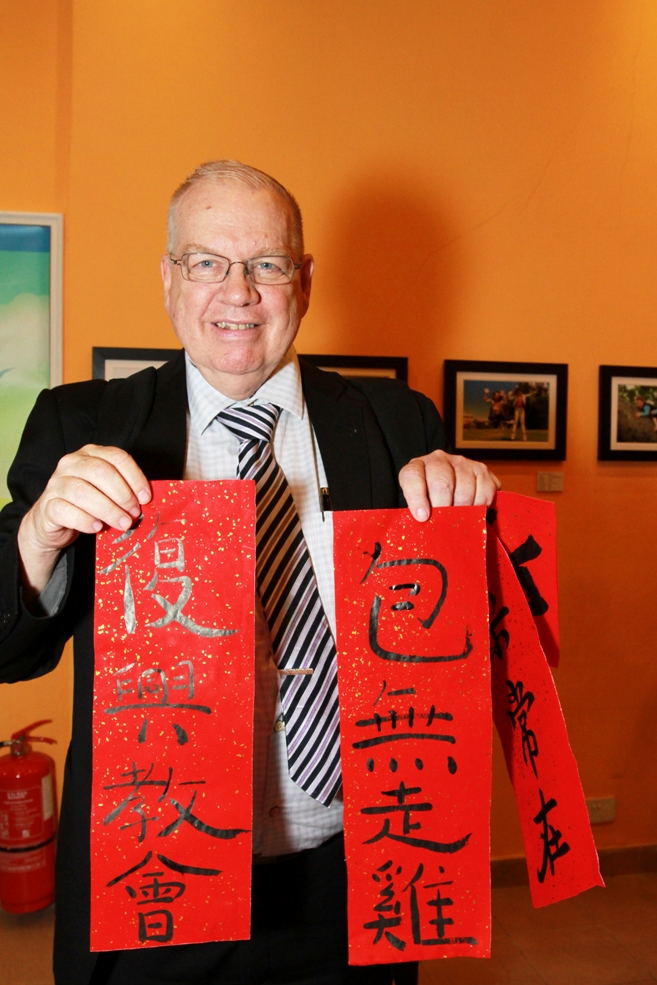 PneumaReview.com: You were called to missions while you were young, please tell our readers how old you were and what you did to prepare yourself for ministry in China after you received the call?
PneumaReview.com: You were called to missions while you were young, please tell our readers how old you were and what you did to prepare yourself for ministry in China after you received the call?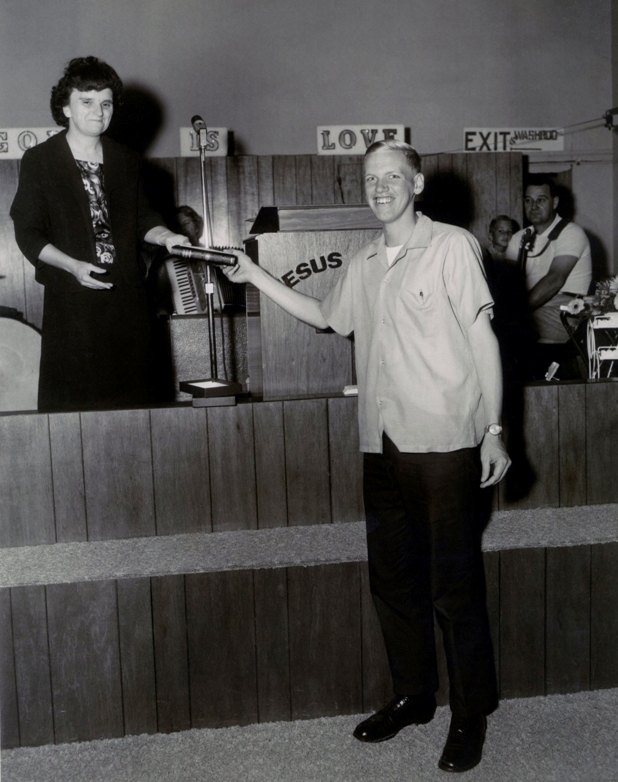 Thus after one year, in 1964, I moved to Long Beach and joined Bethany Chapel. They had a tremendous practical training program, but it was in the evenings and weekends. I got a job as a cook on the local State college. For 4 years, I followed this man of God and sat under the ministry of some of the most powerful apostles and prophets of that age, learning so much through both the classes and the practical outreach ministries.
Thus after one year, in 1964, I moved to Long Beach and joined Bethany Chapel. They had a tremendous practical training program, but it was in the evenings and weekends. I got a job as a cook on the local State college. For 4 years, I followed this man of God and sat under the ministry of some of the most powerful apostles and prophets of that age, learning so much through both the classes and the practical outreach ministries.
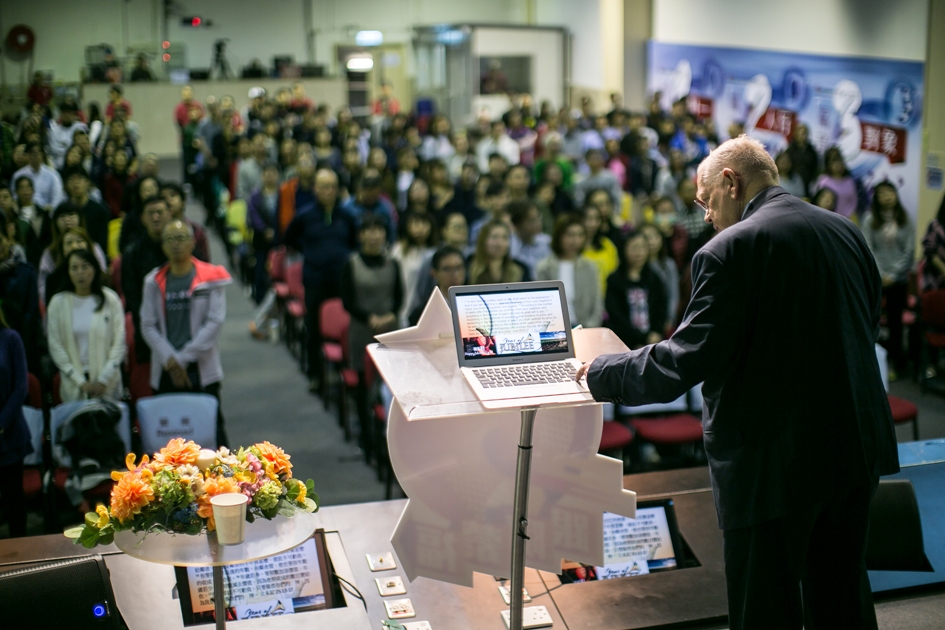 In 1997, at the time of the handover of Hong Kong to the PRC, we set up another ministry, Revival Chinese Ministries International, which replaced the old Bible courier ministry of our church, Revival Christian Church.
In 1997, at the time of the handover of Hong Kong to the PRC, we set up another ministry, Revival Chinese Ministries International, which replaced the old Bible courier ministry of our church, Revival Christian Church.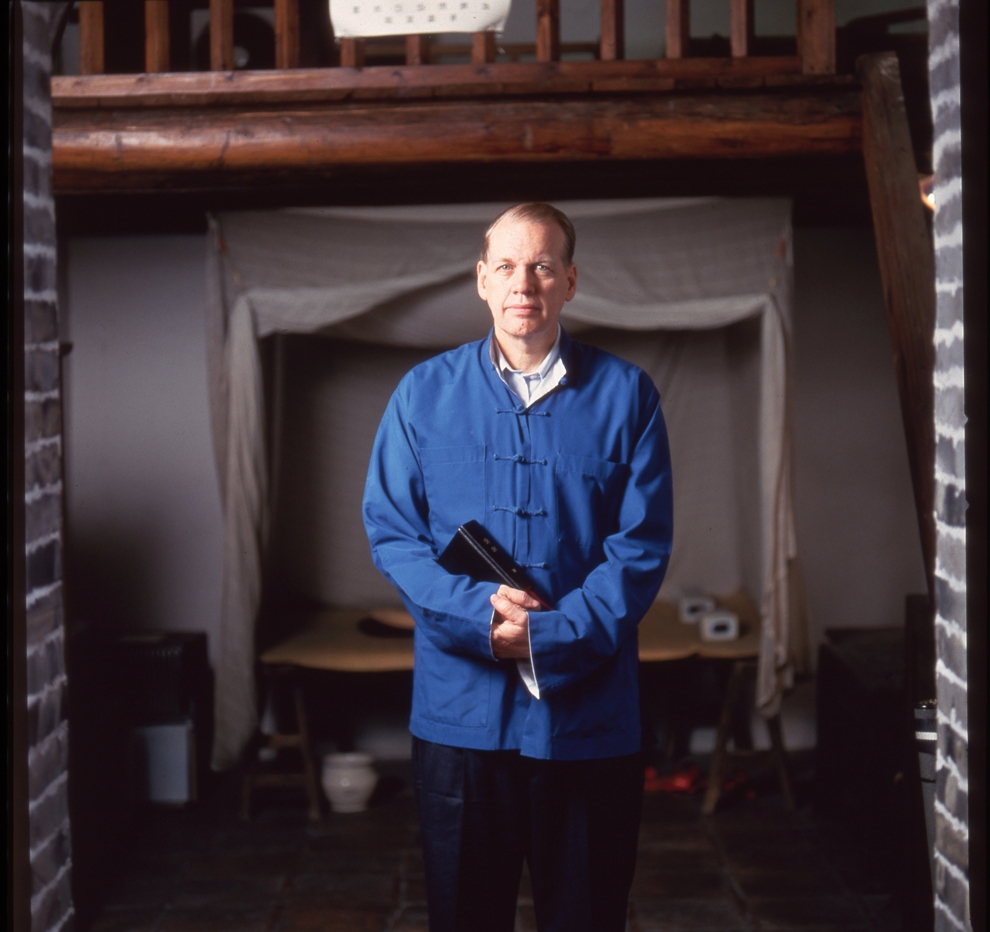 In China missions, most successful former missionaries did that, the most notable being those of the China Inland Mission under Hudson Taylor. Thus, most Chinese churches today can trace their roots to the work of his missionaries. However, few modern missionaries immerse themselves in the culture they are trying to reach, their denomination often providing translators, and they have no motivation to do so. Thus, many are less than effective in their ministry.
In China missions, most successful former missionaries did that, the most notable being those of the China Inland Mission under Hudson Taylor. Thus, most Chinese churches today can trace their roots to the work of his missionaries. However, few modern missionaries immerse themselves in the culture they are trying to reach, their denomination often providing translators, and they have no motivation to do so. Thus, many are less than effective in their ministry.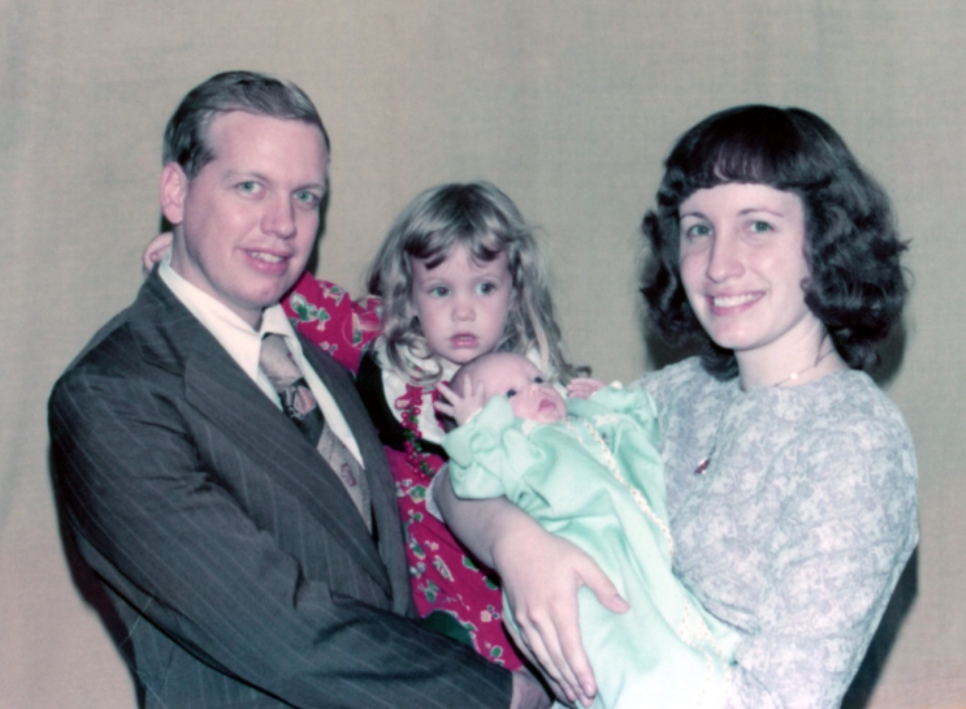
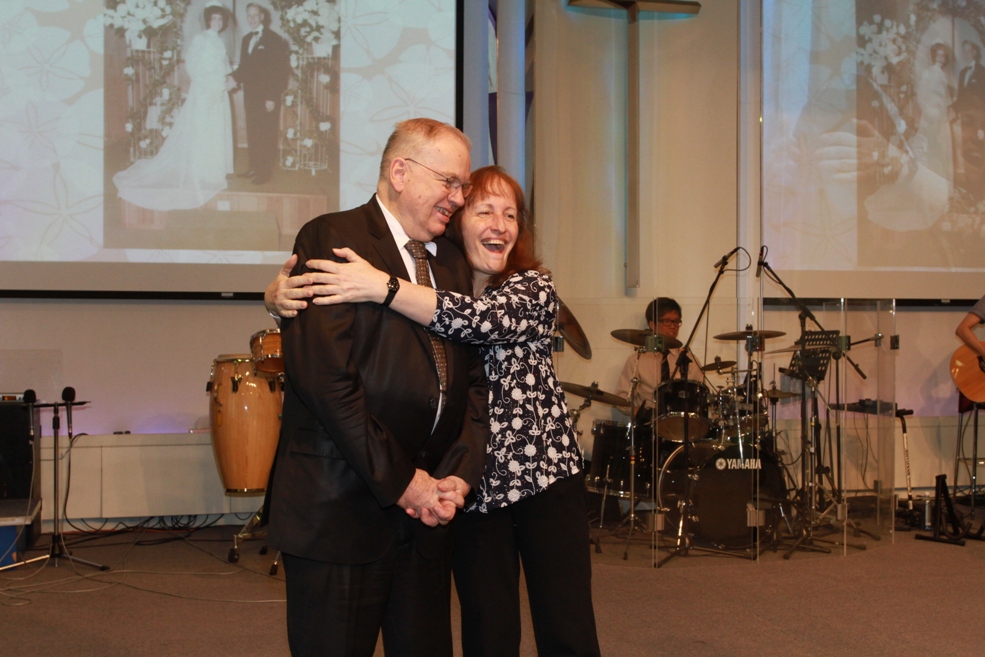
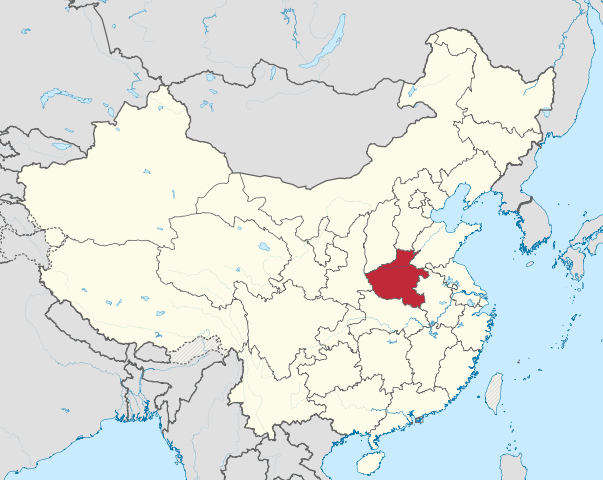

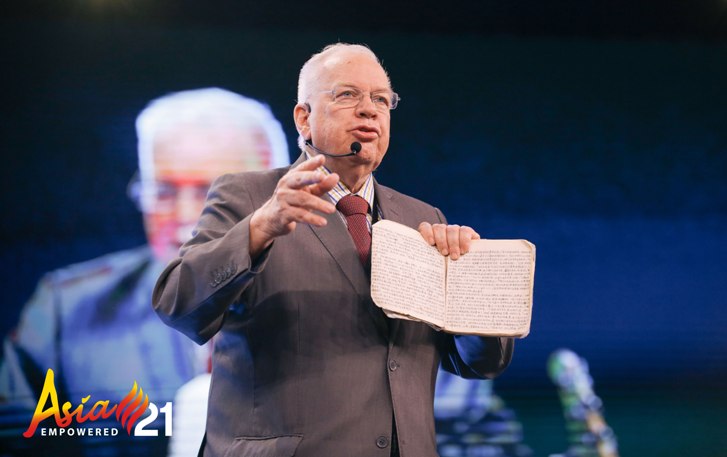
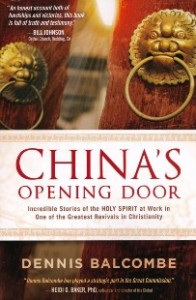
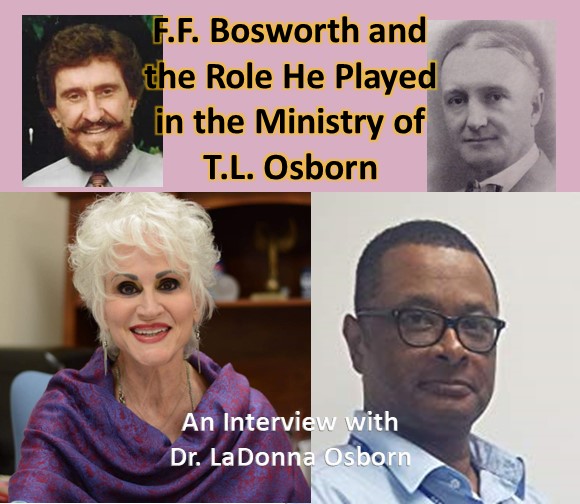
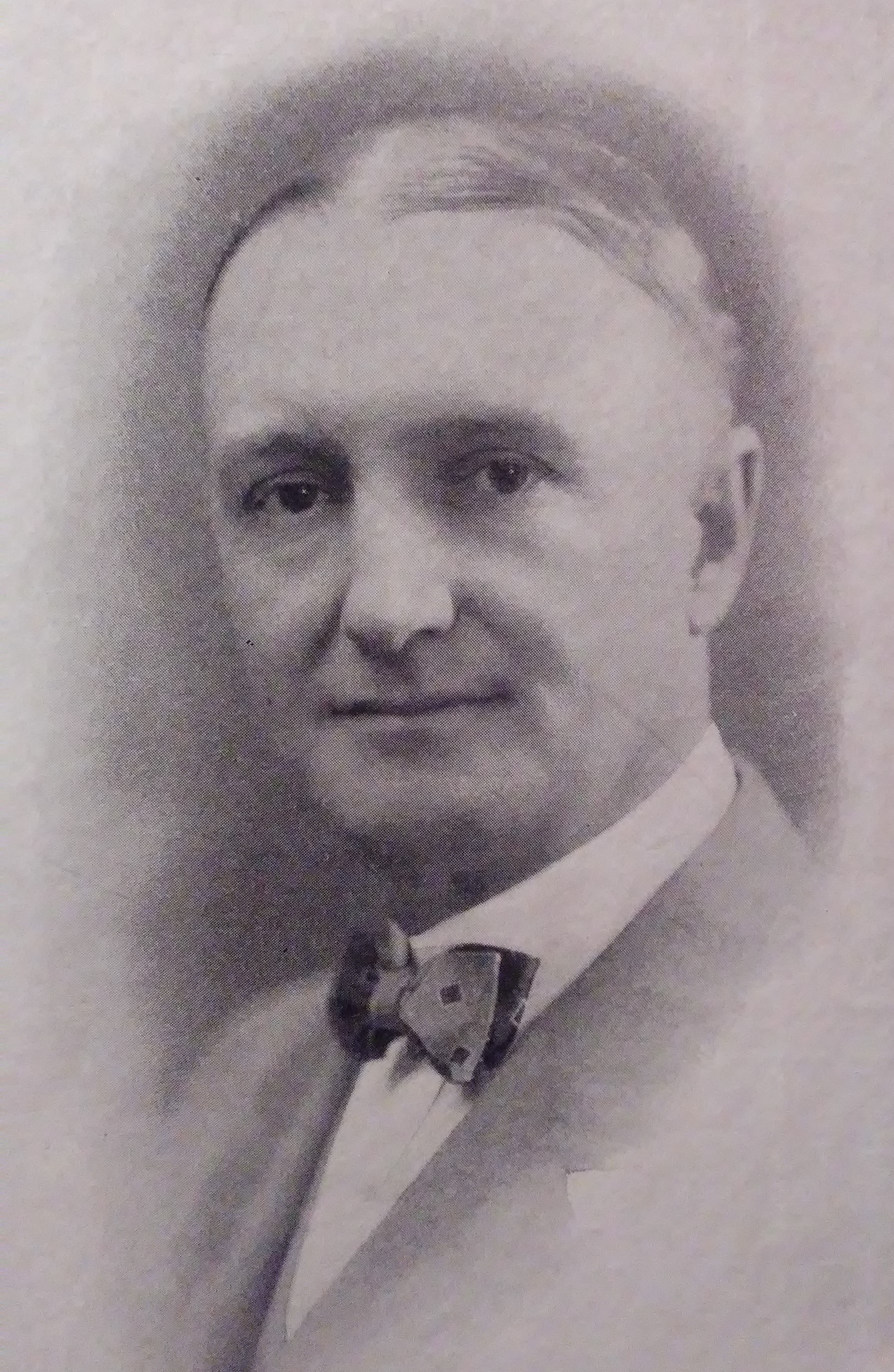
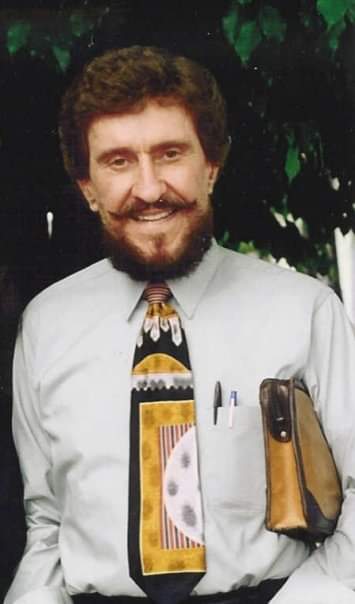
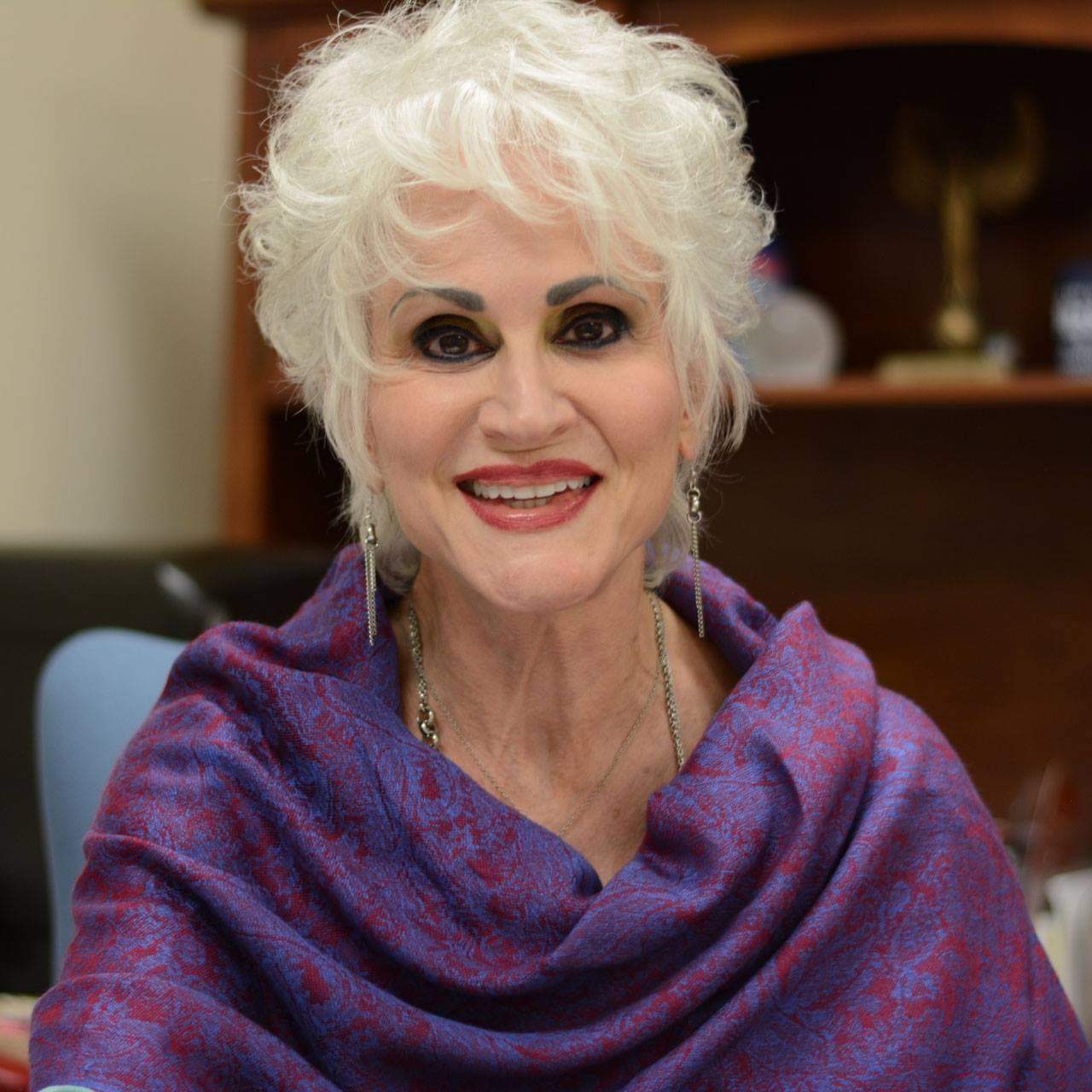
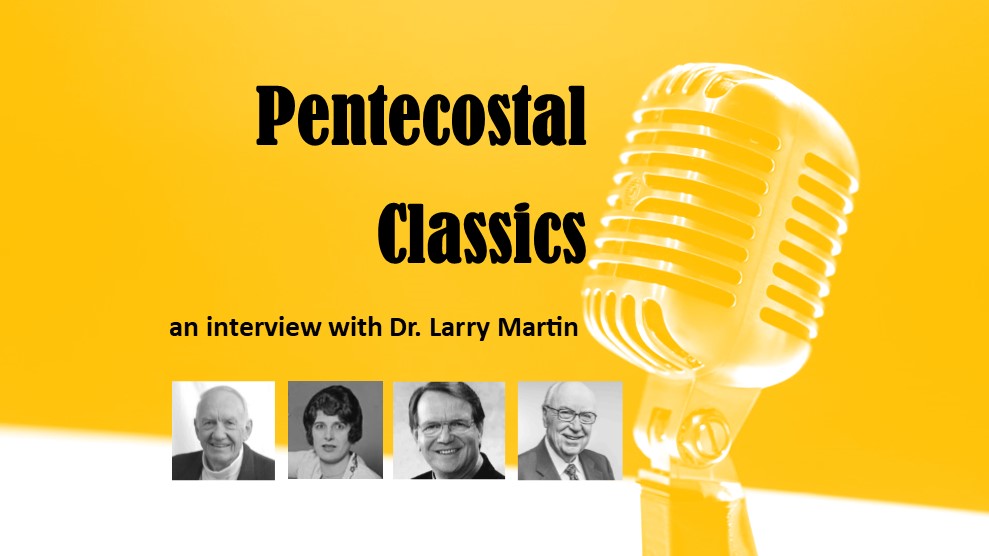

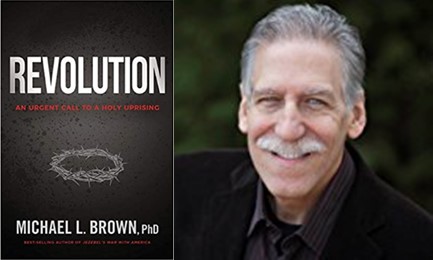
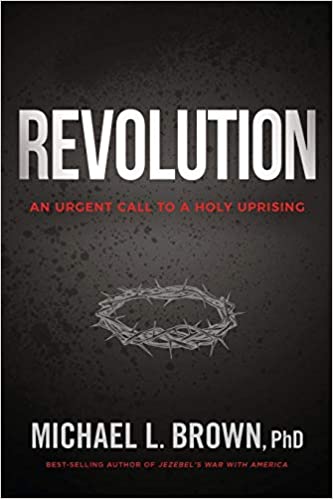
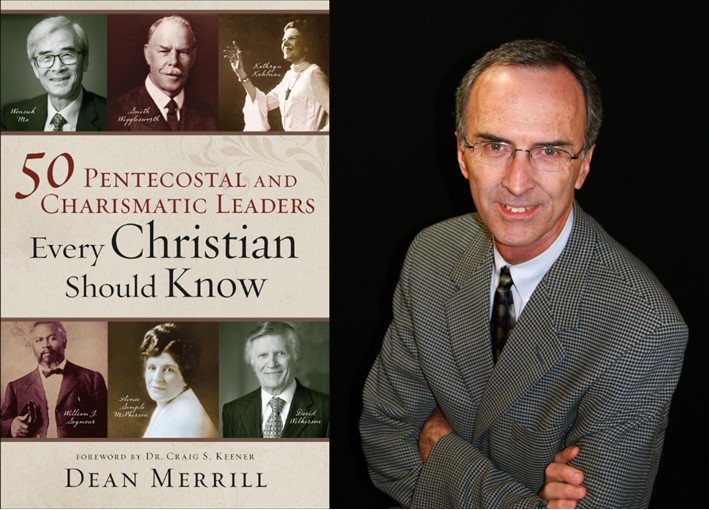
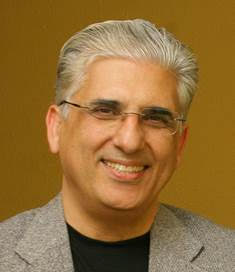 Dr. Hormoz Shariat: I was a Ph.D. student at the University of Southern California (USA) when I came to Christ by comparing Quran and the Bible. I realized that both could not be true. After that, I went to a church in downtown Los Angeles. That is when I heard the Gospel and responded to it.
Dr. Hormoz Shariat: I was a Ph.D. student at the University of Southern California (USA) when I came to Christ by comparing Quran and the Bible. I realized that both could not be true. After that, I went to a church in downtown Los Angeles. That is when I heard the Gospel and responded to it.